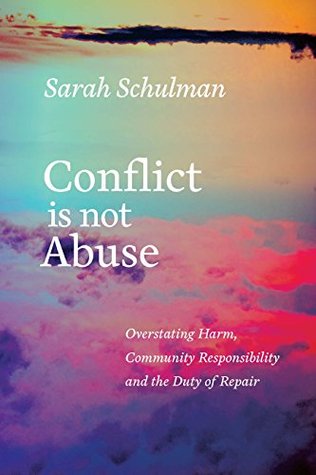More on this book
Community
Kindle Notes & Highlights
Methodology I ground my perspective in the queer: I use queer examples, I cite queer authors, I am rooted in queer points of view, I address and investigate concerns and trends in queer discourse. I come directly from a specifically lesbian historical analysis of power, rooted generationally in Audre Lorde and Adrienne Rich, in which sexual, racial, material, emotional, colonial, and gender dynamics were seen as continuous and interrelated. Audre, in particular, in her classic Zami: A New Spelling of My Name, which she called a “Biomythography,” addressed the question of genre directly by
...more
My range of consideration is broad. Queer intellectuals and artists are no longer required to stay within our subject ghetto. We no longer have to choose between queer subjectivity and the world. The world, at least the world of ideas, now understands that the two are integrated. In some arenas I can claim “expertise,” but in others I have something deeper to offer. As an artist I offer the reader an eclectic way in. I do not practice the “one, long, slow idea”
Once the cruelty and perhaps violence erupts, it is too late. Or at least requires a level of repair outside of the range of what many of us will do without encouragement and support. Conflict, after all, is rooted in difference and people are and always will be different. With the exception of those natural disasters that are not caused by human misdeed, most of the pain, destruction, waste, and neglect towards human life that we create on this planet and beyond, are consequences of our overreaction to difference. This is expressed through our resistance to facing and resolving problems,
...more
Therefore how we understand Conflict, how we respond to Conflict, and how we behave as bystanders in the face of other people’s Conflict determines whether or not we have collective justice and peace.
when I was sixteen in 1975 and faced the brutality of my parents’ homophobia, I went to my high school guidance counselor. He told me not to tell my classmates that I was a lesbian because they could shun me. In other words, instead of intervening, he upheld the distorted thinking, unjustified punishment, and exclusion. Today, when I hear about familial homophobia from my students, I connect them to relevant aspects of the LGBT community, provide alternatives in my classroom, and offer to speak to their parents,
She wants attention for this word and we all give it to her. She smiles, she is bold, she commands but she is also soft in her command. Now I am thinking about her sexually. I am thinking about the word G-spot, its mythologies and implications. The more she insists that we think about this, the more I begin to think about penetrating her and I am also thinking about her penetrating me. Is she flirting with me? I am the stranger here; the others are her workmates. I don’t know if she is always like this, if she is flirting with someone else at the table, or if this is for my benefit. Is this
...more
Being accused of desire is as old as history itself, and is central to the queer experience. It has been very, very dangerous. Both seeing and imagining queer desire in another has and can cost us our lives, our homes, our families, and employment. We have been excluded, shunned, imprisoned, and murdered for knowing or believing that desire is reciprocated.
The use of accusations of desire as an overstatement of harm is a prototype with powerful trickle-down application. After all, many of us are never supposed to express erotic feeling or its discrete and different counterpart: erotic interest.
Once we stop being determined to produce a victim and are instead focused on learning the truth of what actually happened, we become willing to accept the discomfort of recognizing two people as being Conflicted and embrace a more humane and acknowledging vision of social relationships. This is essential if we want peace.
They used a mutant form of feminism to see themselves as “abused” and therefore entitled to call the police so that the other person would be punished. But the earlier anti-violence activists were responding to a very different kind of violence, a violence of “Power Over,” a violence that was designed to control behavior and was sustained, not incidental, as a response to cruelty.
in a self-advertised “progressive” nation, Canada, the state actively seeks to convince HIV-negative citizens that they have been Abused so that they will punitively overreact,
the conditions and obligations of People With AIDS in Canada and the US were profoundly and irrevocably different. While the US is more powerful, has more military might, and globalizes its culture, Canada now has the richest middle-class in the world. Despite a decade of right-wing government austerity politics and severe cuts to social services before the Liberal Party’s victory in 2015, the remaining Canadian safety net seems cushy by American standards. Yet Canadians find its diminishment severe and dramatic.
In Canada, however, the 1969 omnibus crime bill made anal sex legal for people over twenty-one, which was the age of majority at the time “provided no more than two people are present.” So while the US was punitive, Canada provided a kind of moralistic, controlling, and judgmental freedom based on an early prescriptive articulation of gay “normalcy” rooted in the couple.
Black men make up fifty-two percent of the heterosexual males who have been charged but only six percent of HIV-infected men in Canada. The overrepresentation of Black male defendants is significant in a country where only 2.5 percent of its population is Black. According to McCaskell, “the trope of the sexually predatory, diseased Black immigrant helped marshal racism to harden public opinion behind HIV criminalization.”


